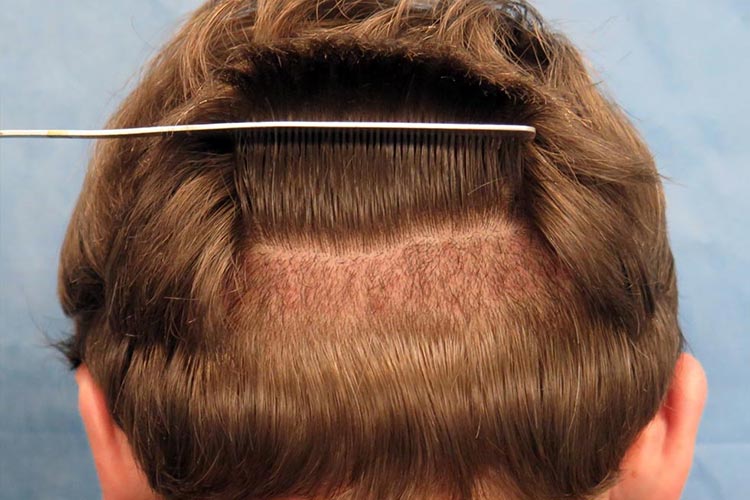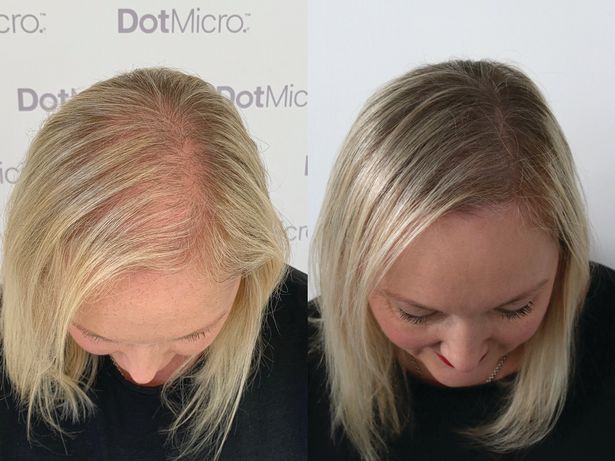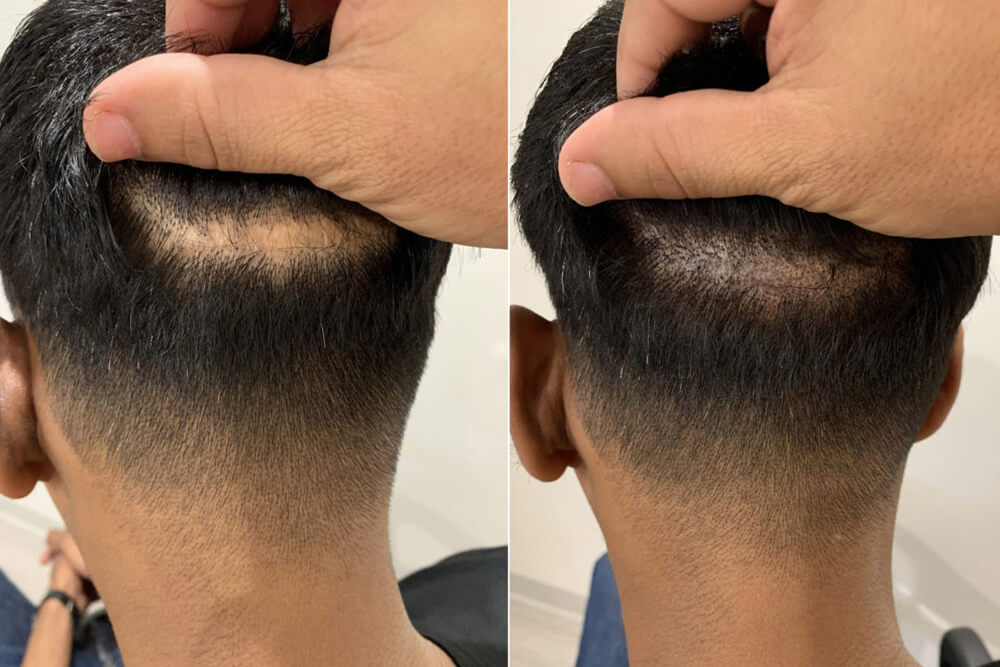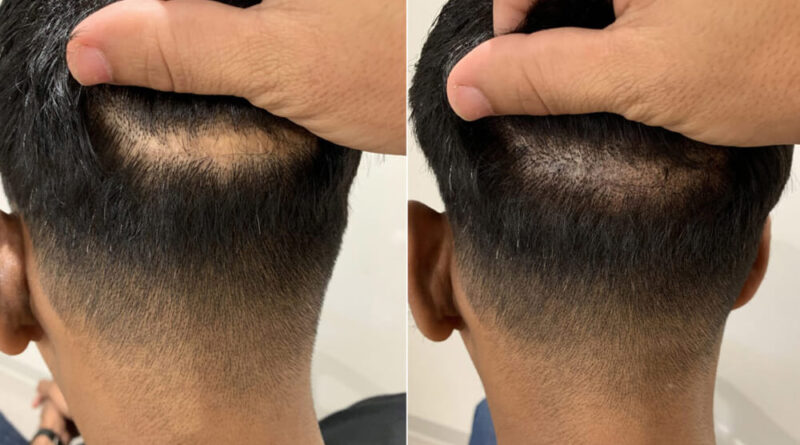Going through hair loss or thinning hair, especially when you’re aging can be quite stressful and due to that many men often look for permanent solutions to the problem.
In fact, as men start reaching the later stages of the Norwood scale of hair loss their treatment options start decreasing.
For more information on the Norwood scale and its stages, visit medihair´s Norwood scale guide.
However, as medical science has progressed further, two treatment methods or techniques have started gaining popularity.
Yes, we are talking about the micropigmentation vs hair transplant debate at Live Enhanced.
Hence why in this article, we’ll be giving you an in-depth introduction of the two techniques, comparing them to each other and giving you our final verdict at the end.
So, make sure to stick around till the end and make the right decision for yourself based on the information in this article.
About Micropigmentation

source: belfastlive.co.uk
Compared to hair transplant surgery, micropigmentation is a relatively low risk non-surgical alternative. To summarize the entire procedure, a small almost microscopic needle is used to apply small amounts of pigment to the scalp.
These pigments then mimic the hair follicles, hence creating more hair and in the process creating a more natural and fuller hairline.
Micropigmentation can even be used to enhance the effects or hide the scars of a hair transplant. The procedure is pretty similar to getting a body tattoo, except this time you’re getting a hairline tattoo. Both processes use small needles to apply pigments.
However, there are some key differences in the procedures. In micropigmentation, a needle slightly smaller in diameter is used due to the delicate nature of the scalp.
The shape of the needle used in micropigmentation is also jagged and not round like a standard tattoo needle in order to give a more natural look.
About Hair Transplants

source: menstylefashion.com
There’s no doubt that hair transplant surgery to combat male pattern baldness, is probably the most popular procedure when it comes to treating hair loss.
Also known as FUT (Follicular Unit Restoration), it is basically used to treat a receding hairline when medication is just not able to.
There are a few different techniques of hair transplant that include FUE (Follicular Unit Extraction) and DHI (Direct Hair Implantation), but the basic idea remains the same. In simple terms, hair follicles are removed from a donor site on your head and implanted into the patchy areas of the scalp.
To go into a little more detail, the process starts with finding a donor site on your head which is most of the time somewhere in the back.
Then, a small strip of tissue is removed and then reattached to the balding areas of the scalp. Immediately after the procedure, you may see some scabs and scars appearing and usually it takes up to 3 months for the new hair to start appearing.
There are plenty of destinations across the world that provide expert hair transplants. However, Turkey is top of the list when it comes to hair transplants that are affordable and successful, mainly because of the expertise of their surgeons.
Micropigmentation vs Hair Transplants: The Verdict

source: foundhair.com
There’s not much to split the two processes and each in their own right is effective in masking or preventing hair loss.
Some people may even choose to undergo both processes as micropigmentation does complement hair transplants by hiding the scars and scabs of the donor site.
The choice of which procedure to receive depends on your situation and preferences. Those who want to avoid surgery might opt for micropigmentation and be satisfied with a small stubble on their scalp rather than a full head of hair.
Moreover, people who have a small and limited donor supply may not want to undergo a hair transplant as the chances of the procedure being botched is too great.
On the other hand, some folks may prefer a hair transplant, if they’re willing to get surgery to physically restore their hairline and restore fullness to their thinning hair.
The only difference between the two procedures is that hair transplants actually restore your hairline and your hair whereas micropigmentation only gives the illusion of more hair.




